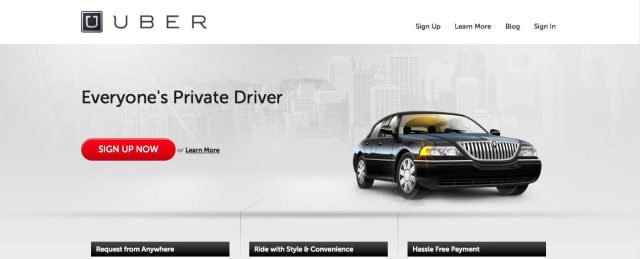
A San Francisco family that lost its six-year-old daughter, Sofia Liu, in a local traffic accident involving an Uber driver last month has now sued the smartphone-enabled black car firm for wrongful death.
On December 31, 2013, Syed Muzzafar was using the Uber app while he was driving but did not have anyone in his car at the time of the accident. Muzzafar was also named as a defendant in Monday’s civil suit.
Uber has previously argued that because Muzzafar "was not providing services on the Uber system during the time of the accident,” the company is not responsible. Andrew Noyes, an Uber spokesperson, declined further comment. He also did not respond to Ars’ question about whether the company’s attitude would be different had Muzzafar been driving an Uber passenger at the time.
Uber’s own terms of service attempt to absolve the company of all responsibility. This portion appears in all caps, unlike nearly all of the rest of the text.
THE COMPANY DOES NOT PROVIDE TRANSPORTATION SERVICES, AND THE COMPANY IS NOT A TRANSPORTATION CARRIER. IT IS UP TO THE THIRD PARTY TRANSPORTATION PROVIDER, DRIVER, OR VEHICLE OPERATOR TO OFFER TRANSPORTATION SERVICES WHICH MAY BE SCHEDULED THROUGH USE OF THE APPLICATION OR SERVICE. THE COMPANY OFFERS INFORMATION AND A METHOD TO OBTAIN SUCH THIRD PARTY TRANSPORTATION SERVICES BUT DOES NOT AND DOES NOT INTEND TO PROVIDE TRANSPORTATION SERVICES OR ACT IN ANY WAY AS A TRANSPORTATION CARRIER AND HAS NO RESPONSIBILITY OR LIABILITY FOR ANY TRANSPORTATION SERVICES PROVIDED TO YOU BY SUCH THIRD PARTIES.
. . .
IN NO EVENT SHALL THE COMPANY AND/OR ITS LICENSORS BE LIABLE TO ANYONE FOR ANY INDIRECT, PUNITIVE, SPECIAL, EXEMPLARY, INCIDENTAL, CONSEQUENTIAL, OR OTHER DAMAGES OF ANY TYPE OR KIND (INCLUDING PERSONAL INJURY, LOSS OF DATA, REVENUE, PROFITS, USE, OR OTHER ECONOMIC ADVANTAGE).
Being “hung out to dry”
Muzzafar, who is out on bail, is likely to face criminal charges, but the San Francisco district attorney has not yet filed those charges.
“[The civil suit] is the next step in this process,” Graham Archer, Muzzafar’s attorney, told Ars. “It was expected by everyone involved. It is the next step for the family on their road to recovering from this tragedy.”
Archer also pointed out that Muzzafar was an unemployed IT worker who had only been an Uber driver for a month at the time of the accident. He was using Uber as a way to make some interim income. Archer added that his client is a married father of four with a five-year-old child.
"It appears that Uber is willing to hang out to dry both my client as well as the Liu family," said Archer. "If [Uber is] unwilling to cover one of their drivers while he’s logged into their system, it seems that that would be hanging him out to dry because he would be potentially liable civilly for the accident and the fact that he was logged into their system at the time could jeopardize his personal insurance coverage and would deny the Liu family the benefit of Uber’s stated insurance policy.”
The 18-page complaint points out that Uber knew, or should have known, that when drivers are using the Uber smartphone app, they would be in plain violation of California Vehicle Code 23123. That code states, “A person shall not drive a motor vehicle while using a wireless telephone unless that telephone is specifically designed and configured to allow hands-free listening and talking and is used in that manner while driving.”
Further, the complaint alleges that Uber knew or should have known that Muzzafar and its other drivers were in violation of a related provision in the California Vehicle Code forbidding the use of an “electronic wireless communications device” while driving.
Beyond the claim of wrongful death, the family is also suing for negligence and product liability, as well as negligent hiring, retention, and training, among other allegations.
reader comments
234